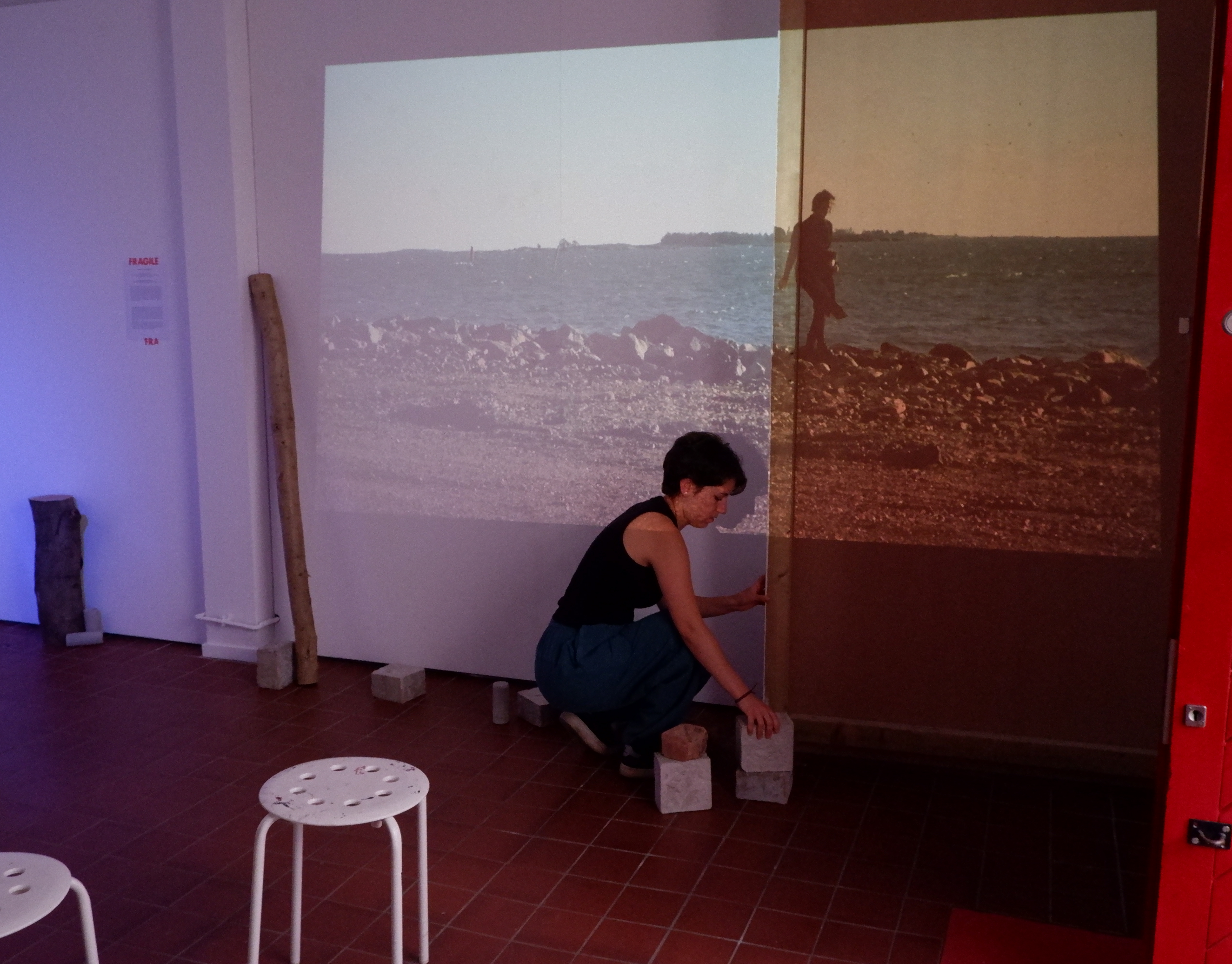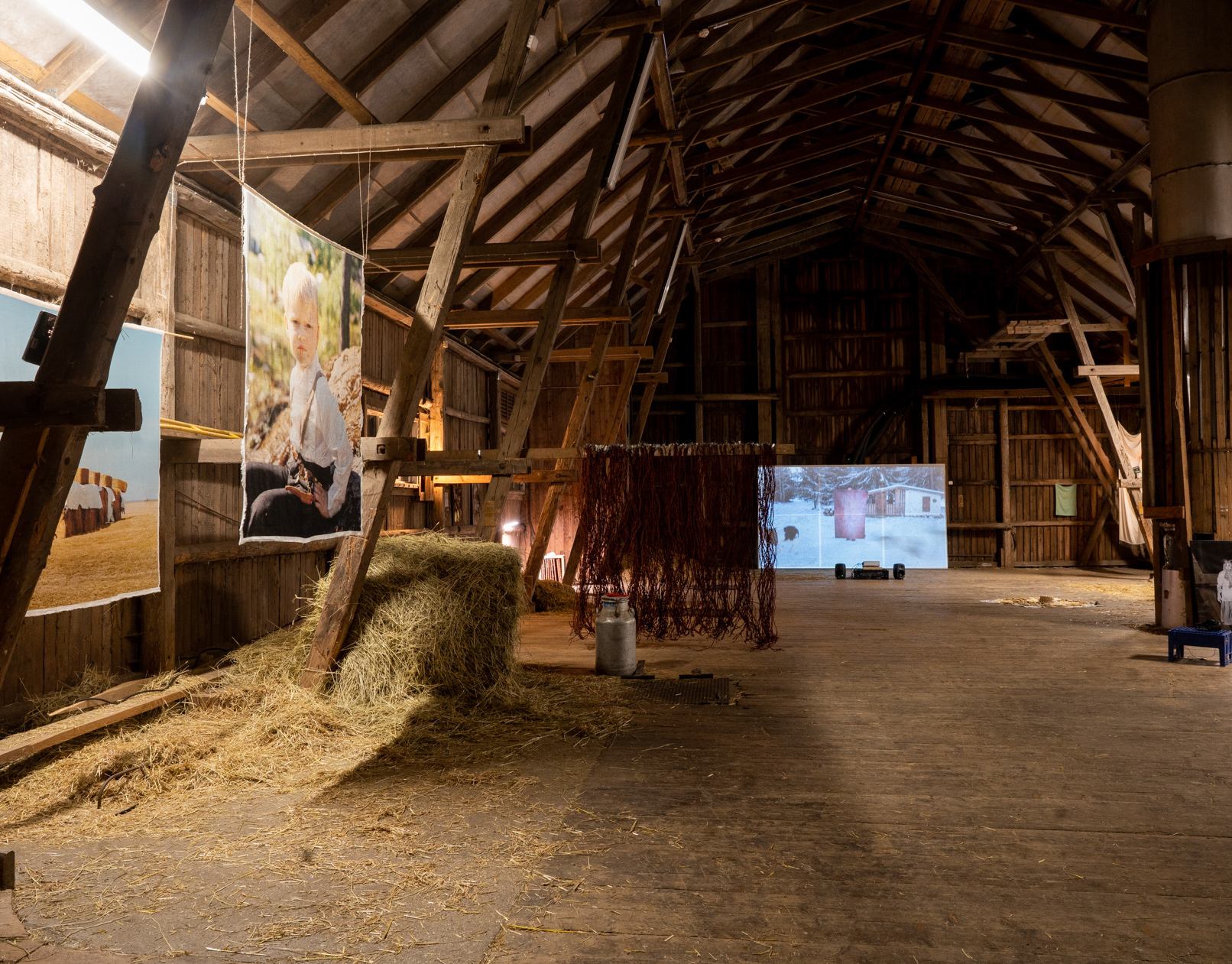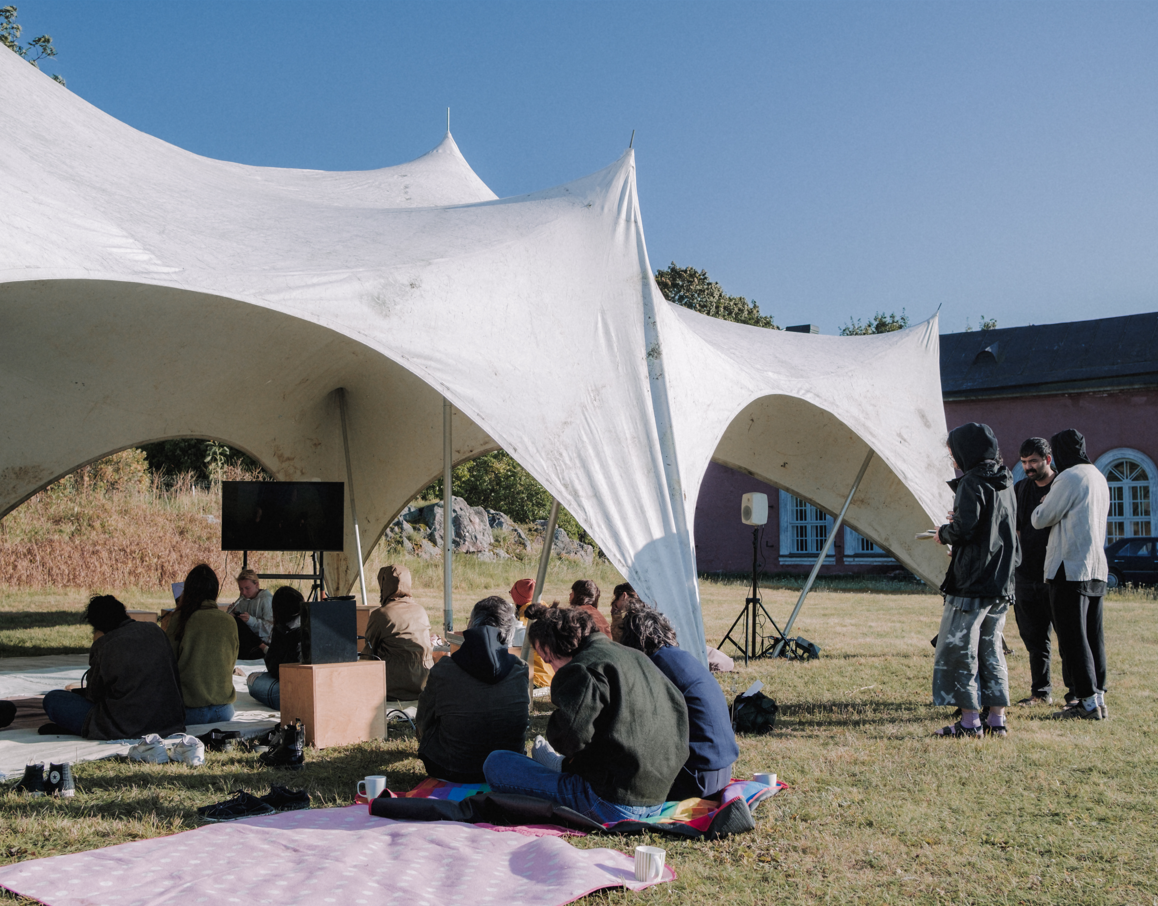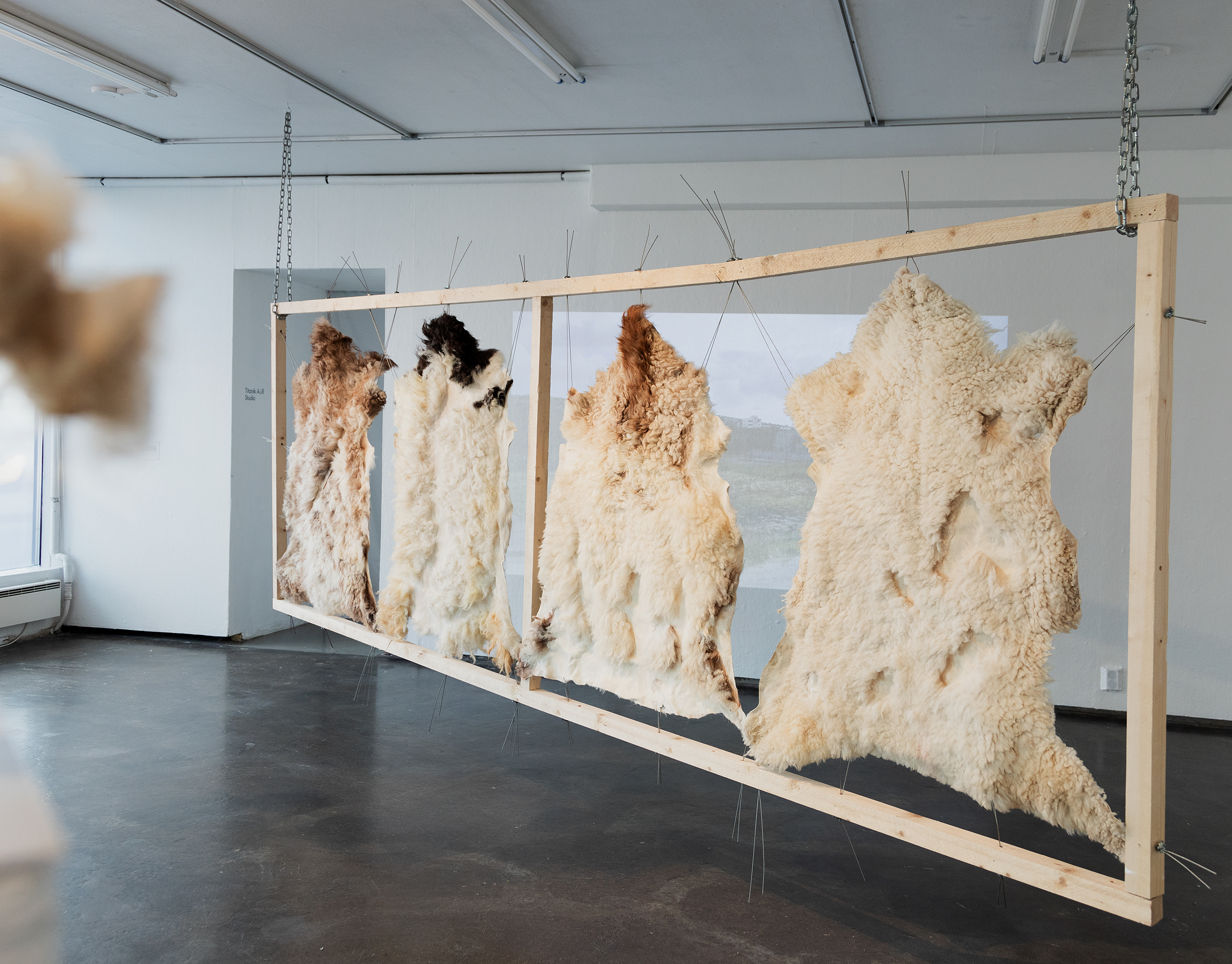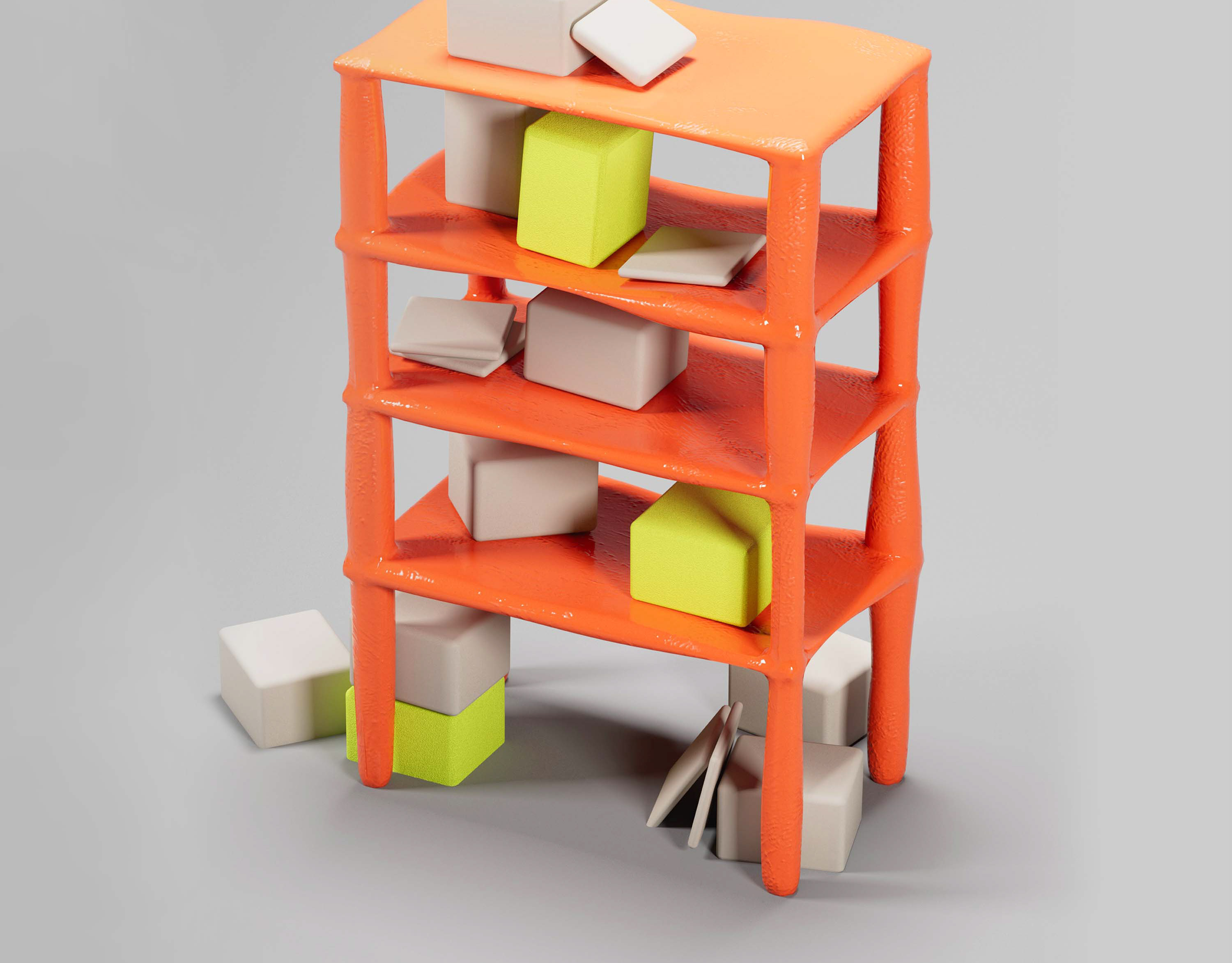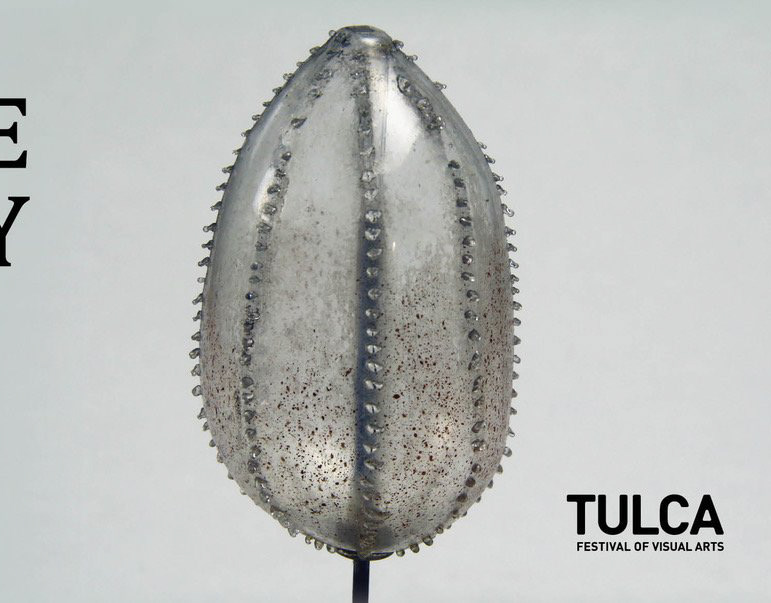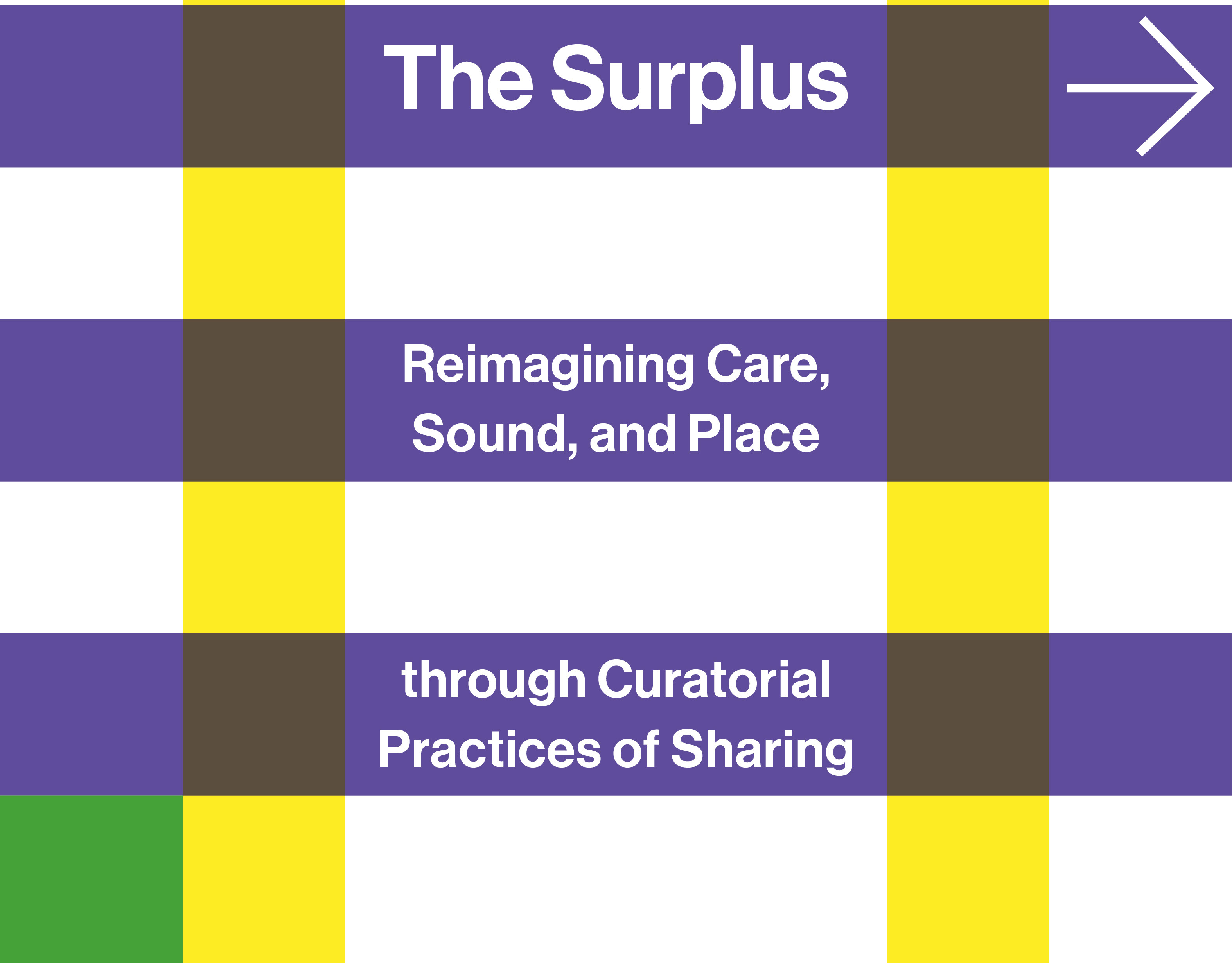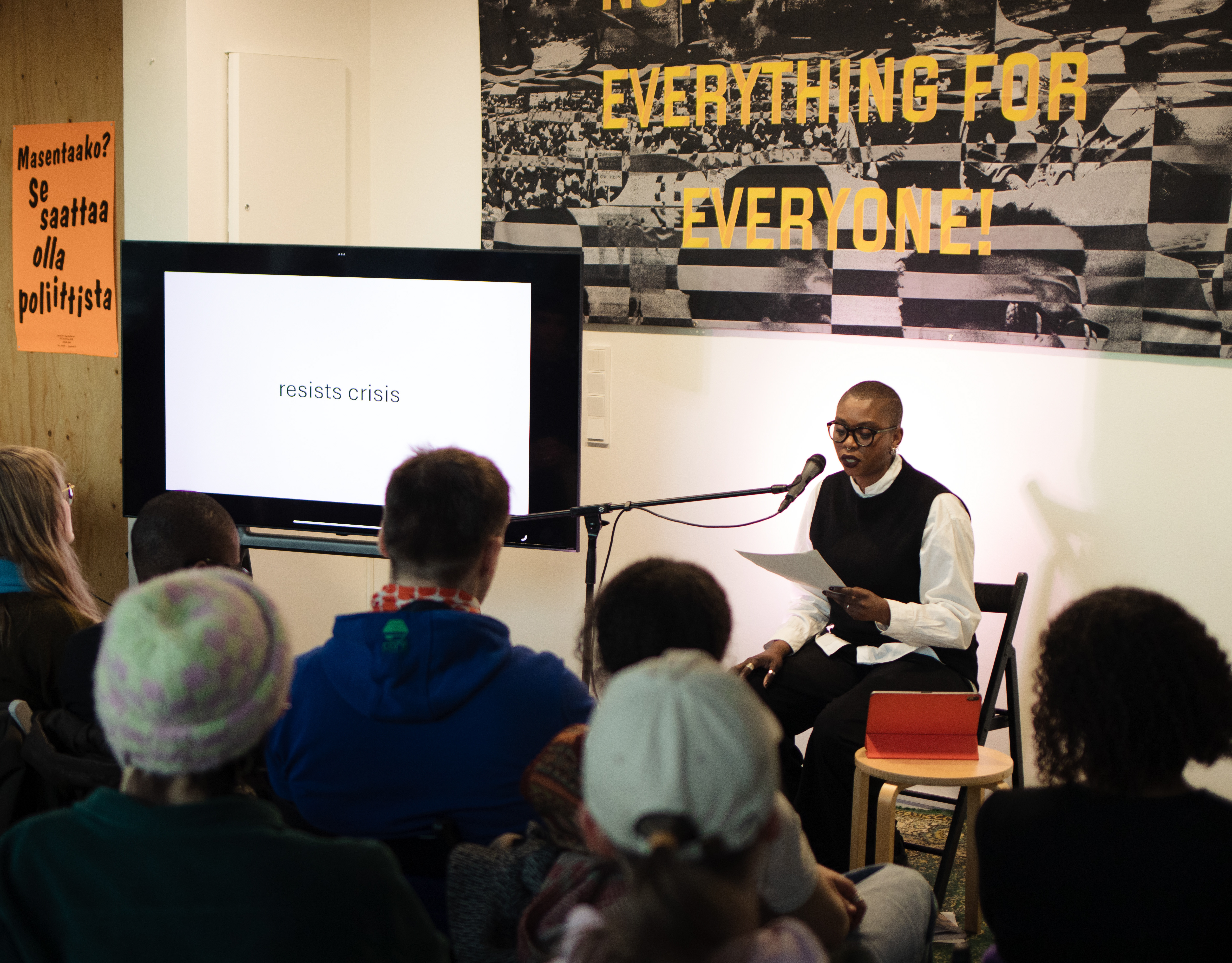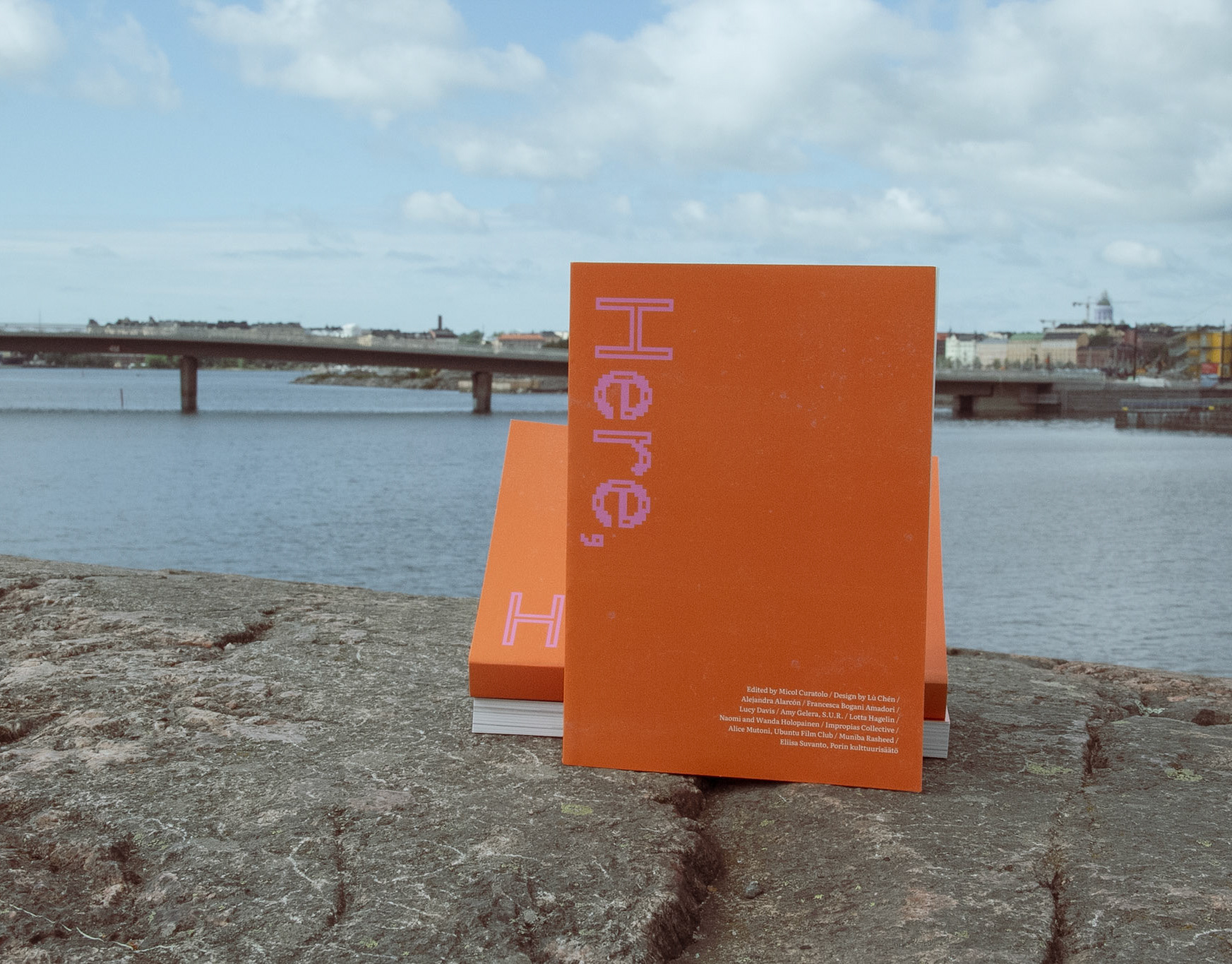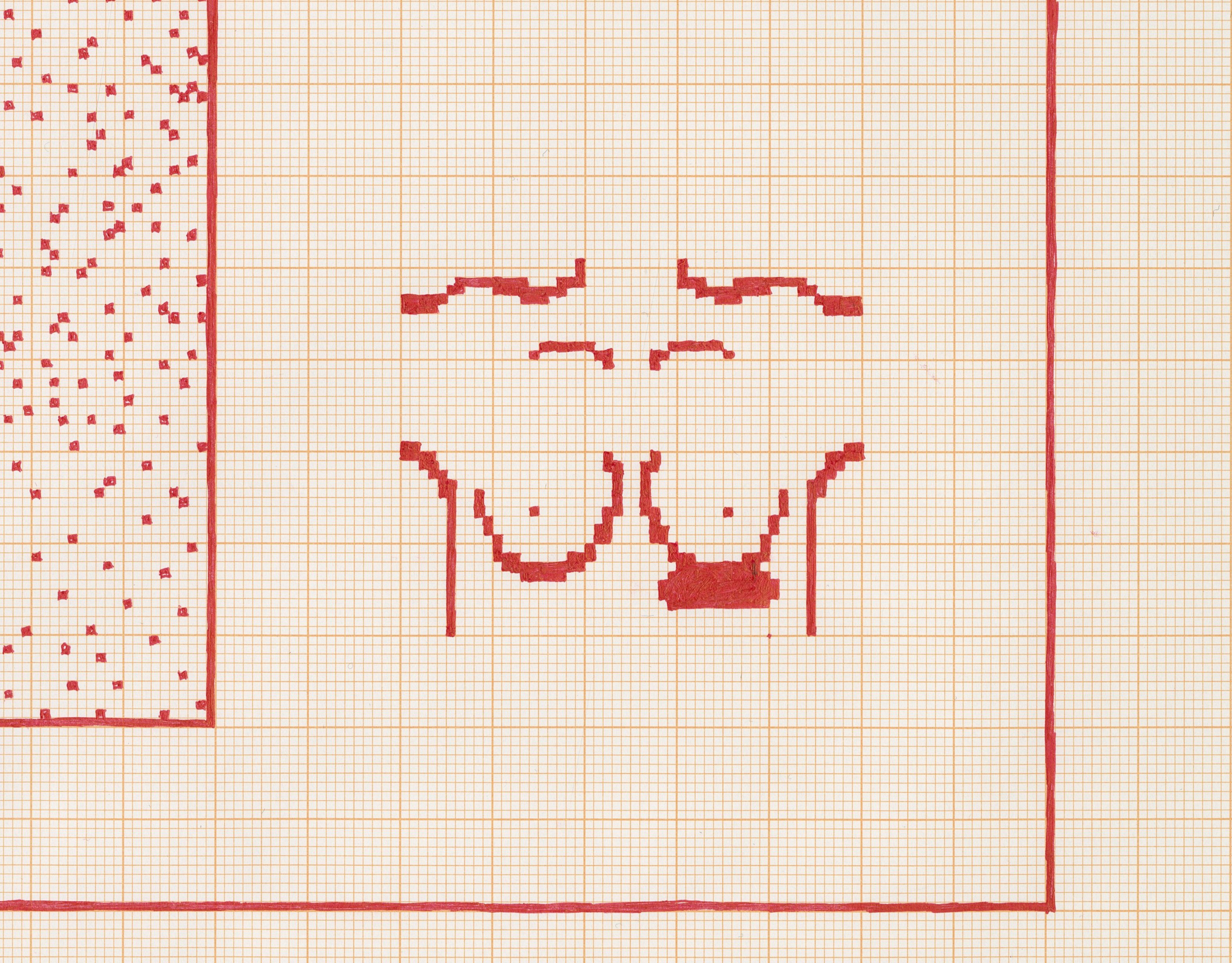Fidgety Shores Of The Makeshift City
Francesca Bogani Amadori, Henry Lämsä, Pääsky Miettinen
Curated by Micol Curatolo
13. - 21.7.2025 in Asbestos Art Space
Francesca Bogani Amadori, Henry Lämsä, Pääsky Miettinen
Curated by Micol Curatolo
13. - 21.7.2025 in Asbestos Art Space
Opening 12.7. at 14:00-17:00
Performances on 12.7. at 15:00 and 21.7. at 17:00
(Meet in Siltavuorenranta by Kirjanpuisto)
Performances on 12.7. at 15:00 and 21.7. at 17:00
(Meet in Siltavuorenranta by Kirjanpuisto)
OPENING HOURS
Weekdays, 13:00-18:00
Saturdays and Sundays, 12:00-16:00
Closed on Mon 14.7. and Tue 15.7.
Weekdays, 13:00-18:00
Saturdays and Sundays, 12:00-16:00
Closed on Mon 14.7. and Tue 15.7.
Fidgety Shores Of The Makeshift City is an exhibition in dialogue with Helsinki’s ever-present
construction sites. The exhibition questions a habit of demolishing and rebuilding by which the
city eats into its landscape, exposing our society’s compulsion for erasure, accumulation and
expansion. Through performative and multimedia work, Francesca Bogani Amadori, Henry
Lämsä, and Pääsky Miettinen engage with the renovation of Hakaniemi's, Merihaka’s and
Hernesaari’s shores. The artworks explore the textures and temporalities of material
displacement in a gentrified landscape that is continuously torn down and rebuilt. Through
embodied practices and speculation, they reflect on the impact that city development has on
collective memory, cohabitation and future social imaginaries. Fidgety Shores Of The Makeshift
City is a semi-fictional and semi-public space engrossed with the dirty piles of matter of our
domesticity.
construction sites. The exhibition questions a habit of demolishing and rebuilding by which the
city eats into its landscape, exposing our society’s compulsion for erasure, accumulation and
expansion. Through performative and multimedia work, Francesca Bogani Amadori, Henry
Lämsä, and Pääsky Miettinen engage with the renovation of Hakaniemi's, Merihaka’s and
Hernesaari’s shores. The artworks explore the textures and temporalities of material
displacement in a gentrified landscape that is continuously torn down and rebuilt. Through
embodied practices and speculation, they reflect on the impact that city development has on
collective memory, cohabitation and future social imaginaries. Fidgety Shores Of The Makeshift
City is a semi-fictional and semi-public space engrossed with the dirty piles of matter of our
domesticity.
ABSENCE IN ACCUMULATION
Francesca Bogani Amadori and Henry Lämsä imagine speculative geographies where the city
expands to the point of eroding its own layers. Their multimedia installation escalates processes
of accumulation, extraction, and displacement from a visual, sonic, and tactile perspective.
Working with materials found around construction sites, such as gravel, sand, cement, and
asphalt, the sculptures intertwine the scale of debris with the city's topography, creating imprints
of abstract spaces. A video expands on these forms by using elevation data and 3D modeling to
construct surfaces that oscillate between real and imagined landscapes. The visual language
echoes the sculptural process, playing with positive and negative presence, erosion, and scale.
It narrates the city’s development from the perspective of its materials in five chapters: I.
Emergence, II. Stratification, III. Displacement and saturation, IV. Flattening, and V. Absence. The
soundscape, composed of field recordings and digital sounds, gives voice to this narrative with
sonic textures that condense until the point where they slowly dissolve, giving space to near
silence. Their work invites to consider absence not as emptiness, but as a residue of
accumulation. The installation confronts the violence of urban saturation, gesturing toward the
deep time of geological recovery: a way of reimagining spatial memory.
expands to the point of eroding its own layers. Their multimedia installation escalates processes
of accumulation, extraction, and displacement from a visual, sonic, and tactile perspective.
Working with materials found around construction sites, such as gravel, sand, cement, and
asphalt, the sculptures intertwine the scale of debris with the city's topography, creating imprints
of abstract spaces. A video expands on these forms by using elevation data and 3D modeling to
construct surfaces that oscillate between real and imagined landscapes. The visual language
echoes the sculptural process, playing with positive and negative presence, erosion, and scale.
It narrates the city’s development from the perspective of its materials in five chapters: I.
Emergence, II. Stratification, III. Displacement and saturation, IV. Flattening, and V. Absence. The
soundscape, composed of field recordings and digital sounds, gives voice to this narrative with
sonic textures that condense until the point where they slowly dissolve, giving space to near
silence. Their work invites to consider absence not as emptiness, but as a residue of
accumulation. The installation confronts the violence of urban saturation, gesturing toward the
deep time of geological recovery: a way of reimagining spatial memory.
POURING HARD OR HARDLY POURING?
Performances in Siltavuorenranta by Kirjanpuisto at 12.7. at 15:00 and 21.7. at 17:00.
Pääsky Miettinen performs on the coast of Kruununhaka, exploring domestic and intimate
interactions with Hakaniemenranta’s growling development site and the waters framed by
Hakaniemi’s two bridges. The dance brings homely and nostalgic elements like porcelain jugs to
meet the movements of the excavators. The shore becomes an edge between past and future; a
contact site – dirty, cosy, harsh, noisy, and in motion – where the audience is invited to join in
giving and receiving, containing and pouring. Miettinen asks questions about hardness and
fragility, hostility and hospitality in the urban environment. Born from bodily interaction with the
neighbourhood and research on the history of its (de)construction, the performance takes the
shape of an album of twelve songs, compiled of memories, gestures, photographs and texts.
Miettinen hosts a concert of movements and words, a lecture and a tea party between human
and machine bodies, weather and water. Dripping, dropping, growing, growling, soaking,
squeezing, washing, messing, blessing...
interactions with Hakaniemenranta’s growling development site and the waters framed by
Hakaniemi’s two bridges. The dance brings homely and nostalgic elements like porcelain jugs to
meet the movements of the excavators. The shore becomes an edge between past and future; a
contact site – dirty, cosy, harsh, noisy, and in motion – where the audience is invited to join in
giving and receiving, containing and pouring. Miettinen asks questions about hardness and
fragility, hostility and hospitality in the urban environment. Born from bodily interaction with the
neighbourhood and research on the history of its (de)construction, the performance takes the
shape of an album of twelve songs, compiled of memories, gestures, photographs and texts.
Miettinen hosts a concert of movements and words, a lecture and a tea party between human
and machine bodies, weather and water. Dripping, dropping, growing, growling, soaking,
squeezing, washing, messing, blessing...
BIOS
Francesca Bogani Amadori is an interdisciplinary artist and artistic researcher based in Helsinki.
Their process-based practice is rooted in embodied methods such as walking, listening, and
sensorial mapping, which they use to investigate how power structures, infrastructures, and
archives shape our perception of place and belonging. Their work explores the relational
dynamics between place, matter, human, and non-human bodies to challenge hegemonic
spatial narratives.
Their process-based practice is rooted in embodied methods such as walking, listening, and
sensorial mapping, which they use to investigate how power structures, infrastructures, and
archives shape our perception of place and belonging. Their work explores the relational
dynamics between place, matter, human, and non-human bodies to challenge hegemonic
spatial narratives.
Henry Lämsä is a media artist based in Helsinki whose work explores how technological systems
and extractive practices shape contemporary landscapes. Working with video, photography, 3D
modeling, and sound, he combines real-world data with speculative narratives that reflect on
material and human displacement, shifting borders, and the ecological impact of extractive
industries, as well as the entangled timescales of human and geological change.
and extractive practices shape contemporary landscapes. Working with video, photography, 3D
modeling, and sound, he combines real-world data with speculative narratives that reflect on
material and human displacement, shifting borders, and the ecological impact of extractive
industries, as well as the entangled timescales of human and geological change.
Pääsky Miettinen is a dance artist and poet working in and between the fields of performance,
pedagogy, choreography and activism. Their work explores how agency and vulnerability move
between performers and audiences, always complicating the questions of who is performing,
who is witnessing, who is at stake and who is in power. Pääsky works from the body, but reaches
towards also verbal and visual modes of expression, focusing on embodied relations to place,
situated knowledges, senses and shifting states of presence and absence.
The exhibition is supported by Kone Foundation.
pedagogy, choreography and activism. Their work explores how agency and vulnerability move
between performers and audiences, always complicating the questions of who is performing,
who is witnessing, who is at stake and who is in power. Pääsky works from the body, but reaches
towards also verbal and visual modes of expression, focusing on embodied relations to place,
situated knowledges, senses and shifting states of presence and absence.
The exhibition is supported by Kone Foundation.
ACCESSIBILITY
To enter the space, there are three narrow steps to the basement floor, a 90 degree turn, and few
more steps into the gallery space. Unfortunately, Asbestos Art Space is not accessible for
wheelchair users. The performances will take place outdoors. If we can help you navigate the
gallery and the performance, you are welcome to email micolcuratolo@gmail.com
more steps into the gallery space. Unfortunately, Asbestos Art Space is not accessible for
wheelchair users. The performances will take place outdoors. If we can help you navigate the
gallery and the performance, you are welcome to email micolcuratolo@gmail.com
